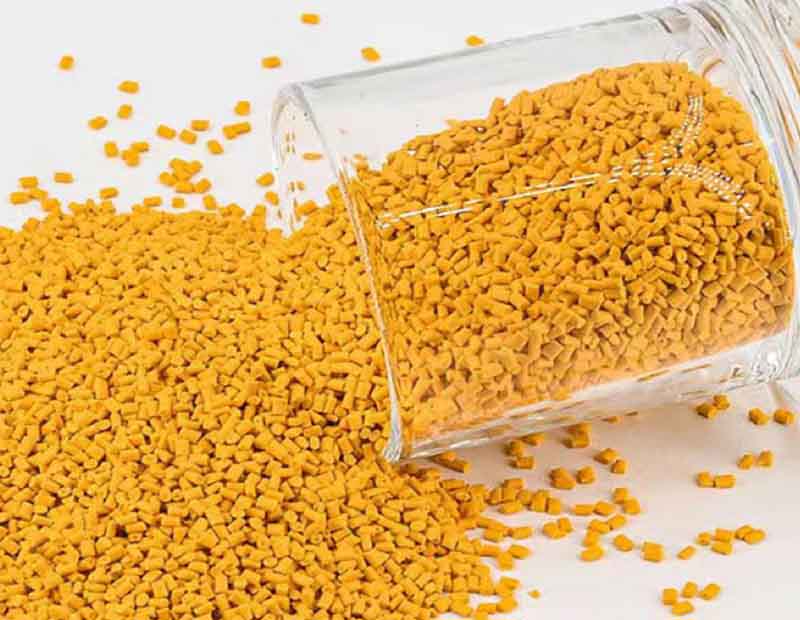What is PPSU Raw Material?
PPSU Raw Materials have become an essential choice in high-performance engineering plastics due to their unique combination of mechanical strength, thermal stability, and chemical resistance. PPSU, short for Polyphenylsulfone, belongs to the family of sulfonated aromatic polymers and is widely used across medical, food, aerospace, and industrial applications.

Definition and Overview
PPSU Raw Materials are amorphous thermoplastic polymers known for their high heat resistance and toughness. Unlike conventional plastics, PPSU maintains structural integrity under extreme conditions, making it a preferred choice where reliability and durability are crucial. PPSU is part of the PSU PPSU group of polymers, which also includes PSU (Polysulfone) and PEI (Polyetherimide), each offering different performance levels in terms of thermal and chemical properties.
Chemical Structure
The molecular structure of ppsu features aromatic rings linked by sulfone (–SO2–) and ether (–O–) groups. This arrangement provides rigidity and excellent thermal stability while retaining enough flexibility to resist cracking under stress. The repeating units of PPSU contribute to its high glass transition temperature (Tg), typically around 220°C, and its ability to endure prolonged exposure to hot water and steam.
Key points of PPSU’s chemical structure:
Aromatic backbone: Ensures high dimensional stability and strength.
Sulfone linkages (–SO2–): Provide resistance to oxidation and hydrolysis.
Ether groups (–O–): Offer flexibility and toughness, reducing brittleness.
Basic Properties of PPSU Raw Materials
High Thermal Resistance: PPSU can withstand continuous service temperatures of 180–200°C, and short-term peaks up to 220°C, making it ideal for sterilization processes and high-temperature applications.
Outstanding Chemical Resistance: PPSU is resistant to acids, bases, alcohols, and most organic solvents. This property ensures long-term performance in demanding chemical environments.
Excellent Mechanical Strength: PPSU raw materials exhibit high impact resistance, even at elevated temperatures, significantly outperforming standard PSU materials.
Transparency and Aesthetic Options: Depending on processing, psu ppsu can be produced in translucent or opaque forms, allowing applications where visual inspection is needed.
Flame Retardancy: Many grades of PPSU meet UL94 V-0 flame retardant standards, crucial for electronic and medical components.
Common Applications
Due to its exceptional properties, ppsu raw materials are applied in various industries:
Medical Devices: PPSU is commonly used in surgical instruments, sterilizable trays, and components requiring repeated autoclaving.
Food Industry: PPSU meets FDA and NSF standards for food contact, making it ideal for baby bottles, kitchenware, and water filters.
Aerospace and Automotive: High-performance psu ppsu components, such as connectors, fuel system parts, and structural elements, benefit from thermal and chemical resistance.
Electronics: PPSU is used in connectors, switchgear components, and housings due to its dimensional stability and flame retardancy.
Advantages of Using PPSU Raw Materials
Compared to other engineering plastics, PPSU raw materials offer:
Long-term durability under mechanical and thermal stress.
Resistance to repeated sterilization and harsh chemicals.
Ease of processing using injection molding, extrusion, or thermoforming.
A reliable alternative to metals in applications requiring weight reduction without compromising strength.
Selecting PPSU Raw Materials
When choosing PPSU raw materials, manufacturers consider factors such as:
Grade and Color: Clear or opaque grades depending on application needs.
Glass Transition Temperature: Ensuring the material can handle the intended operating temperatures.
Compliance Standards: FDA, ISO, and other certifications for medical or food applications.
Mechanical Requirements: Impact strength, tensile strength, and fatigue resistance tailored to specific uses.
PPSU raw materials are high-performance thermoplastics that combine toughness, thermal stability, and chemical resistance. Whether for medical devices, food contact applications, or demanding industrial environments, ppsu offers a reliable solution where standard plastics may fail. Its unique chemical structure, along with the flexibility and strength of psu ppsu, ensures that components made from PPSU meet the highest standards of quality and durability.
Investing in high-quality PPSU raw materials not only enhances product performance but also extends service life, reduces maintenance costs, and supports compliance with global safety and quality standards. As industries continue to demand lightweight, durable, and high-temperature-resistant materials, ppsu remains a top choice for manufacturers worldwide.






